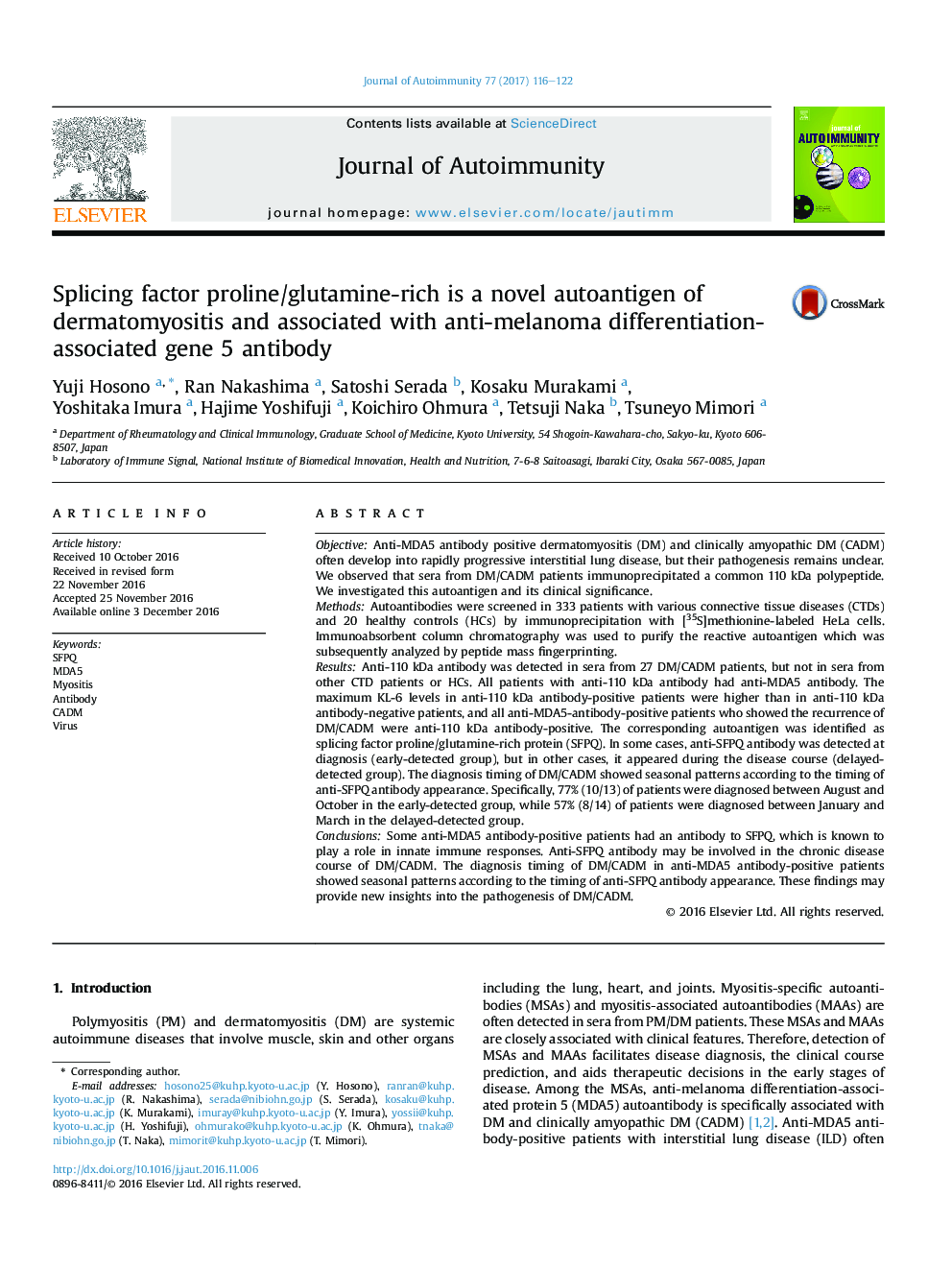| Article ID | Journal | Published Year | Pages | File Type |
|---|---|---|---|---|
| 5667923 | Journal of Autoimmunity | 2017 | 7 Pages |
â¢SFPQ is a novel autoantigen for dermatomyositis (DM).â¢All anti-MDA5-positive patients who showed recurrence of DM/CADM had anti-SFPQ.â¢Diagnosis timing had seasonality according to the timing of anti-SFPQ appearance.
ObjectiveAnti-MDA5 antibody positive dermatomyositis (DM) and clinically amyopathic DM (CADM) often develop into rapidly progressive interstitial lung disease, but their pathogenesis remains unclear. We observed that sera from DM/CADM patients immunoprecipitated a common 110Â kDa polypeptide. We investigated this autoantigen and its clinical significance.MethodsAutoantibodies were screened in 333 patients with various connective tissue diseases (CTDs) and 20 healthy controls (HCs) by immunoprecipitation with [35S]methionine-labeled HeLa cells. Immunoabsorbent column chromatography was used to purify the reactive autoantigen which was subsequently analyzed by peptide mass fingerprinting.ResultsAnti-110Â kDa antibody was detected in sera from 27 DM/CADM patients, but not in sera from other CTD patients or HCs. All patients with anti-110Â kDa antibody had anti-MDA5 antibody. The maximum KL-6 levels in anti-110Â kDa antibody-positive patients were higher than in anti-110Â kDa antibody-negative patients, and all anti-MDA5-antibody-positive patients who showed the recurrence of DM/CADM were anti-110Â kDa antibody-positive. The corresponding autoantigen was identified as splicing factor proline/glutamine-rich protein (SFPQ). In some cases, anti-SFPQ antibody was detected at diagnosis (early-detected group), but in other cases, it appeared during the disease course (delayed-detected group). The diagnosis timing of DM/CADM showed seasonal patterns according to the timing of anti-SFPQ antibody appearance. Specifically, 77% (10/13) of patients were diagnosed between August and October in the early-detected group, while 57% (8/14) of patients were diagnosed between January and March in the delayed-detected group.ConclusionsSome anti-MDA5 antibody-positive patients had an antibody to SFPQ, which is known to play a role in innate immune responses. Anti-SFPQ antibody may be involved in the chronic disease course of DM/CADM. The diagnosis timing of DM/CADM in anti-MDA5 antibody-positive patients showed seasonal patterns according to the timing of anti-SFPQ antibody appearance. These findings may provide new insights into the pathogenesis of DM/CADM.
